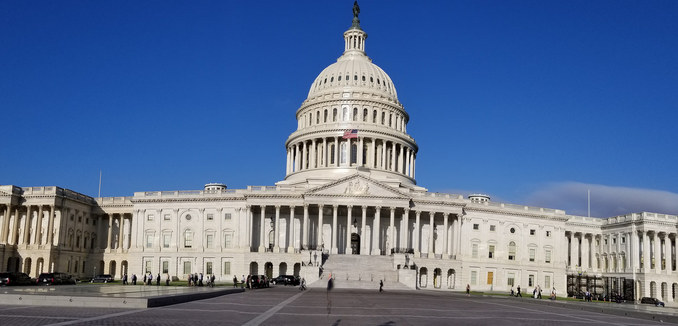A bipartisan bill to define anti-Semitism to fight the prevalence of anti-Semitism on campus was introduced in Congress, The Times of Israel reported Thursday.
The Anti-Semitism Awareness Act, which is sponsored by Rep Jerrold Nadler (D – N.Y.), Rep. Peter Roskam (R – Ill.), Rep. Doug Collins (R – Ga.), Sen. Tim Scott (R – S.C.), and Sen. Bob Casey (D – Pa.), instructs the Department of Education to adopt the definition of anti-Semitism that was formulated by the State Department’s Special Envoy to Monitor and Combat Anti-Semitism office in 2010.
The sponsors of the bill say that the Education Department needs criteria to identify anti-Semitism so that action can be taken against those who violate U.S. anti-discrimination laws.
A 2016 Brandeis University study found that campuses with anti-Israel boycott movements had a greater number of anti-Semitic incidents. An Amcha Initiative study earlier that year also found a strong correlation between anti-Israel campus activism and anti-Semitism.
“I’ve heard far too many stories from Jewish students of the anti-Semitism they face in schools and on college campuses every day,” one of the sponsors, Deutch, said.
“Jewish students, like students of any religion, should not live in fear of attacks because of their religion. They shouldn’t have to fear wearing Judaic symbols or expressing their support for Israel. As we work to combat all forms of discrimination and hate, Congress must act to protect Jewish students on campus, and this legislation would help the Education Department stem this troubling trend.”
“There is no place for anti-Semitism or religious discrimination on our college campuses,” said Roskam. “Across the nation, we’re witnessing a significant rise in Jewish students being targeted and harassed for no reason other than their identity. In Illinois, anti-Semitic incidents have nearly doubled in recent years. With numerous incidences of anti-Semitic vandalism, propaganda and cases of harassment surfacing across Illinois’ universities, we must stand together against hate. This legislation would ensure that the Department of Education is properly able to identify all forms of anti-Semitic incidences when investigating illegal discrimination on campus. Like all other students, Jewish students have the right to feel safe on campus. With this legislation, Congress can play an important role in this effort.”
“At a time of rising incidents of anti-Semitism, this legislation addresses a core concern of Jewish and pro-Israel students and parents: When does the expression of anti-Semitism, anti-Israel and anti-Zionist sentiments cross the line from First Amendment-protected free expression to harassing, unlawful, discriminatory conduct?” Jonathan Greenblatt, the CEO of the ADL said, pushing back against claims that the legislation would stifle free speech.
The Louis D. Brandeis Center, which seeks to “advance the civil and human rights of the Jewish people,” supported the legislation. Kenneth Marcus, president of the Brandeis Center, and nominee for the top civil rights job at the Department of Education, said that adopting a standard definition of anti-Semitism is an important “first step” for government agencies’ anti-discrimination efforts.
The ACLU opposes the legislation saying that it will target legitimate criticism of Israel. However, the State Department working definition of anti-Semitism clearly states, “criticism of Israel similar to that leveled against any other country cannot be regarded as anti-Semitic.”
The state of South Carolina adopted similar legislation in April.
[Photo: soccerdhg / Flickr]




